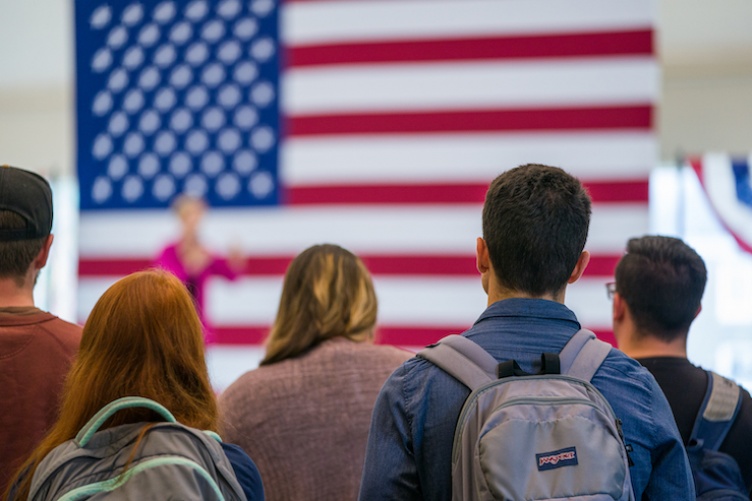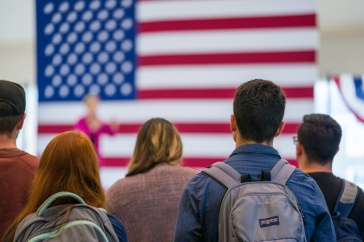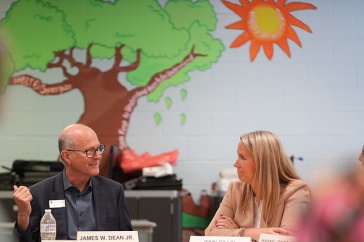
First in the nation. It’s the role in presidential primaries that New Hampshire has held since 1920, one that made Granite Staters tighten their grip and pass new legislation when that position was challenged. The law now reads voting will take place “seven days or more immediately” before any similar election in any other state.
There are people who wonder what the big deal is — first, 10th, last, who cares? Some think it’s time New Hampshire stepped aside and let another state take the lead, one that has a more diverse population, for example. Still others say — and this may be the larger question here —does it even matter?

The answer is yes. A lot. And while the speculation might be that it’s about money — New Hampshire’s 2000 primary generated $260,000 million in direct and indirect impact in the state — that theory doesn’t hold up. According to the economic impact study conducted after the Al Gore-Bill Bradley primary, 80 percent of those millions went to television ads, with the majority spent on stations in Massachusetts.
“Money is not the reason we defend the primary. We get more impact from two NASCAR races,” says Andrew Smith, co-author of “The First Primary: New Hampshire's Outsize Role in Presidential Nominations,” and director of the UNH Survey Center. “The main reason we want to hold onto our position is pride. It’s what we’re known for; it’s central to the political psyche of New Hampshire voters.”
In 1910, Oregon was the first state to establish a primary system, which required delegates to support the winner of its primary at the National Convention. Two years later, North Dakota held the first presidential primary. Then, in 1916, 20 states held contests, with Indiana leading the way on March 7, followed by New Hampshire and Minnesota a week later. In 1920, Indiana moved its primary to May, and Minnesota changed to a caucus, leaving New Hampshire at the head of the pack.
“By 1920, we were first,” Smith says. “Part of the reason was, we were cheap. Town meeting day was the second Tuesday of March. A state legislator from Bethlehem said, ‘why should we open the town hall twice; why not hold the primary the same day?’ It was never intended to be the first.”
“Money is not the reason we defend the primary. We get more impact from two NASCAR races.”
And so town halls opened for voting only once that year, on Tuesday, March 9, 1920, six months before women got the right to vote. After that, and for the next 28 years, no one really paid attention to the fact that New Hampshire was first in the nation. Then in 1948, Speaker of the House Richard F. Upton proposed a law to create two ballots, one to elect delegates and the other to vote for a presidential candidate. (Prior to that, the primary only elected delegates.)
“This became known as the “beauty contest,’” Smith says, “because the vote for the presidential candidate didn’t count; it had no impact. In fact, a candidate could receive the most votes and still not win the delegates or the nomination.”
The first presidential primary following the change was held in 1952 when a senator from Tennessee, Estes Kefauver, beat President Harry Truman to win all the New Hampshire delegates. Kefauver lost the Democratic bid to Gov. Adlai Stevenson, who was then defeated by Gen. Dwight D. Eisenhower, a write-in candidate who had never stepped foot in New Hampshire.
“By then the parties had become big political machines that consisted of mostly white voters,” Smith says. “Television had been invented and reporters were sent to New Hampshire to cover the primary. Newspapers became political entities, where before, their job was to sell ads. Things started to change.”
Adds political science professor Dante Scala, “From 1952 forward, the national media latched on to New Hampshire voters for early insight into what voters across the country were thinking. The genius was making the primary into a national media event.”
“We became the barometer for the national mood,” says Scala, who authored, “Stormy Weather: The New Hampshire Primary and Presidential Politics.” “The national media likes to cover New Hampshire, partly because of its size — it’s easy to get around, and they can talk to lots of voters. It’s not like trying to cover California or New York or Pennsylvania. New Hampshire’s a small playground. That’s added protection to its first-in-the-nation standing.”
Between 1968 and 1976, the number of primaries in the country nearly doubled, their importance rising, in part, as a result of the publicity. In New Hampshire, lesser known candidates could gain national exposure from the primary coverage they otherwise might not have gotten. And that can be an indicator of how well they will do in other primaries.
“New Hampshire is important to the nominee,” Smith says. “They get a lot more attention here than in all the other states combined. And when they win, they’ve got a half a billion dollars-plus in media working for them for the next race. They got momentum.”
Says Scala, “No one knew a century ago that holding the first primary would matter that much. It’s like inheriting a property nobody wants and it ends up being valuable. New Hampshire’s first-in-the-nation status was a happy accident.”
The New Hampshire primary is set for Tuesday, Feb. 11, one week and one day after Iowa holds the national election year’s first caucus.
-
Written By:
Jody Record ’95 | Communications and Public Affairs | jody.record@unh.edu
















































